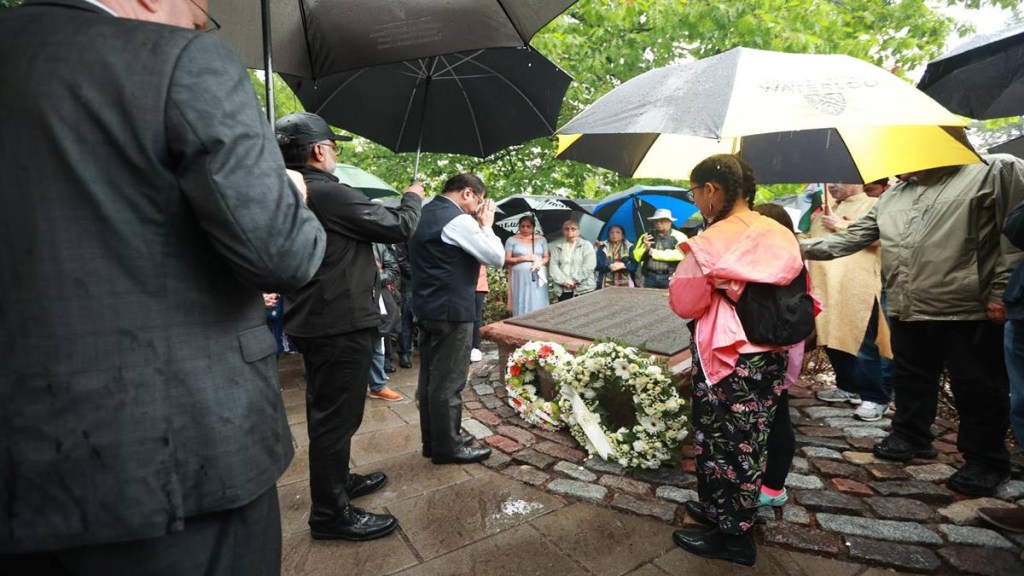On June 23, 2024, the 39th anniversary of the Kanishka Air India terror attack was observed, marking a solemn reminder of the 1985 tragedy that claimed 329 lives. This catastrophic event, caused by a bomb planted by Khalistani terrorists based in Canada, remains the worst terror attack in Canadian history and one of the most devastating aviation disasters ever.
The attack was orchestrated by Talwinder Singh Parmar, the founder of the banned terrorist organization Babbar Khalsa International. Inderjit Singh Reyat was the only person convicted in connection with the bombing, receiving a five-year prison sentence in 2003. Reyat was released in 2016 after serving over two decades in jail. Two other suspects, Ripudaman Singh Malik and Ajaib Singh Bagri, were acquitted.
India’s External Affairs Minister, S Jaishankar, took to social media to underline the importance of never tolerating terrorism. He stated, “Today marks the 39th anniversary of one of the worst acts of terrorism in history… The anniversary is a reminder why terrorism should never be tolerated.” His words reflect India’s enduring commitment to seeking justice for the victims and their families.
At the memorial event held at the Air India Flight 182 monument in Ottawa’s Commissioner’s Park, Indian High Commissioner to Canada, Sanjay Kumar Verma, delivered a poignant speech. He condemned the attack as a “heinously planned cowardly attack” and expressed the ongoing desire for complete justice for the victims’ families. Verma’s speech highlighted the broader implications of allowing terrorism to persist unchecked, emphasizing that human lives should take precedence over political interests.
The Indian high commissioner’s remarks underscored India’s concerns over the tolerance of extremist ideologies in Canada. India has repeatedly expressed its worries about the activities of Khalistani extremists in Canada, including protests and threats against Indian diplomats. The recent incident involving Canadian Prime Minister Justin Trudeau attending an event with pro-Khalistan chants further strained relations. This led to India’s Deputy High Commissioner being summoned in New Delhi.
Canadian Prime Minister Justin Trudeau also issued a statement on the anniversary, acknowledging the attack’s impact and reiterating Canada’s commitment to countering terrorism and violent extremism. Trudeau mentioned Canada’s efforts, including updating its Counter-Terrorism Strategy and funding organizations to better understand and prevent violent extremism. However, his statement did not reference the perpetrators of the attack.
Jagmeet Singh, leader of the New Democratic Party (NDP) and a significant supporter of the Trudeau government, also made a statement on the anniversary but did not mention the perpetrators. His post on X (formerly Twitter) emphasized resilience against hate without addressing the specifics of the terror attack.
The commemoration of the Kanishka bombing comes amidst strained diplomatic relations between India and Canada. The Canadian Parliament recently observed a minute of silence for Khalistani terrorist Hardeep Singh Nijjar, who was killed in British Columbia a year ago. India has accused Canada of harbouring Khalistani extremists and glorifying terrorism, accusations that Canada denies as it investigates Nijjar’s killing.
The Air India Flight 182 bombing was a horrific event that saw the plane, en route from Montreal to London, explode over the Atlantic Ocean. Among the victims were 268 Canadians, 27 Britons, and 24 Indians. The bombing was believed to be retaliation for the Indian government’s Operation Bluestar in 1984, which aimed to flush out militants from the Golden Temple in Amritsar.
This anniversary serves as a stark reminder of the devastating consequences of terrorism and the ongoing struggle for justice. It underscores the need for global unity in condemning and combating terrorism to ensure such tragedies are never repeated. As Jaishankar fittingly noted, “The anniversary is a reminder why terrorism should never be tolerated,” reinforcing the collective responsibility to uphold justice and human dignity.

